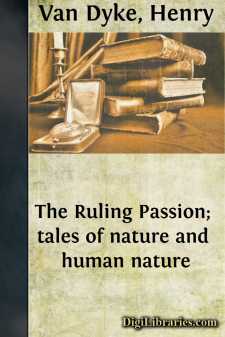Categories
- Antiques & Collectibles 13
- Architecture 36
- Art 48
- Bibles 22
- Biography & Autobiography 816
- Body, Mind & Spirit 145
- Business & Economics 28
- Children's Books 17
- Children's Fiction 14
- Computers 4
- Cooking 94
- Crafts & Hobbies 4
- Drama 346
- Education 58
- Family & Relationships 59
- Fiction 11834
- Foreign Language Study 3
- Games 19
- Gardening 17
- Health & Fitness 34
- History 1378
- House & Home 1
- Humor 147
- Juvenile Fiction 1873
- Juvenile Nonfiction 202
- Language Arts & Disciplines 89
- Law 16
- Literary Collections 686
- Literary Criticism 179
- Mathematics 13
- Medical 41
- Music 40
- Nature 179
- Non-Classifiable 1768
- Performing Arts 7
- Periodicals 1453
- Philosophy 66
- Photography 2
- Poetry 897
- Political Science 203
- Psychology 45
- Reference 154
- Religion 516
- Science 126
- Self-Help 85
- Social Science 82
- Sports & Recreation 34
- Study Aids 3
- Technology & Engineering 59
- Transportation 23
- Travel 463
- True Crime 29
Our website is made possible by displaying online advertisements to our visitors.
Please consider supporting us by disabling your ad blocker.
The Lost Word A Christmas Legend of Long Ago
by: Henry Van Dyke
Categories:
Description:
Excerpt
THE POVERTY OF HERMAS
"COME down, Hermas, come down! The night is past. It is time to be stirring. Christ is born to-day. Peace be with you in His name. Make haste and come down!"
A little group of young men were standing in a street of Antioch, in the dusk of early morning, fifteen hundred years ago. It was a class of candidates who had nearly finished their two years of training for the Christian church. They had come to call their fellow-student Hermas from his lodging.
Their voices rang out cheerily through the cool air. They were full of that glad sense of life which the young feel when they awake and come to rouse one who is still sleeping. There was a note of friendly triumph in their call, as if they were exulting unconsciously in having begun the adventure of the new day before their comrade.
But Hermas was not asleep. He had been waking for hours, and the dark walls of his narrow lodging had been a prison to his restless heart. A nameless sorrow and discontent had fallen upon him, and he could find no escape from the heaviness of his own thoughts.
There is a sadness of youth into which the old cannot enter. It seems to them unreal and causeless. But it is even more bitter and burdensome than the sadness of age. There is a sting of resentment in it, a fever of angry surprise that the world should so soon be a disappointment, and life so early take on the look of a failure. It has little reason in it, perhaps, but it has all the more weariness and gloom, because the man who is oppressed by it feels dimly that it is an unnatural and an unreasonable thing, that he should be separated from the joy of his companions, and tired of living before he has fairly begun to live.
Hermas had fallen into the very depths of this strange self-pity. He was out of tune with everything around him. He had been thinking, through the dead, still night, of all that he had given up when he left the house of his father, the wealthy pagan Demetrius, to join the company of the Christians. Only two years ago he had been one of the richest young men in Antioch. Now he was one of the poorest. And the worst of it was that, though he had made the choice willingly and accepted the sacrifice with a kind of enthusiasm, he was already dissatisfied with it.
The new life was no happier than the old. He was weary of vigils and fasts, weary of studies and penances, weary of prayers and sermons. He felt like a slave in a treadmill. He knew that he must go on. His honour, his conscience, his sense of duty, bound him. He could not go back to the old careless pagan life again; for something had happened within him which made a return impossible. Doubtless he had found the true religion, but he had found it only as a task and a burden; its joy and peace had slipped away from him.
He felt disillusioned and robbed. He sat beside his hard little couch, waiting without expectancy for the gray dawn of another empty day, and hardly lifting his head at the shouts of his friends.
"Come down, Hermas, you sluggard!...












